Similar: Convert a string to Linq.Expressions or use a string as Selector?
A similar one of that one: Passing a Linq expression as a string?
Another question with the same answer: How to create dynamic lambda based Linq expression from a string in C#?
Reason for asking something which has so many similar questions:
The accepted answer in those similar questions is unacceptable in that they all reference a library from 4 years ago (granted that it was written by code master Scott Gu) written for an old framework (.net 3.5) , and does not provide anything but a link as an answer.
There is a way to do this in code without including a whole library.
Here is some sample code for this situation:
public static void getDynamic<T>(int startingId) where T : class
{
string classType = typeof(T).ToString();
string classTypeId = classType + "Id";
using (var repo = new Repository<T>())
{
Build<T>(
repo.getList(),
b => b.classTypeId //doesn't compile, this is the heart of the issue
//How can a string be used in this fashion to access a property in b?
)
}
}
public void Build<T>(
List<T> items,
Func<T, int> value) where T : class
{
var Values = new List<Item>();
Values = items.Select(f => new Item()
{
Id = value(f)
}).ToList();
}
public class Item
{
public int Id { get; set; }
}
Note that this is not looking to turn an entire string into an expression such as
query = "x => x.id == somevalue";
But instead is trying to only use the string as the access
query = x => x.STRING;
